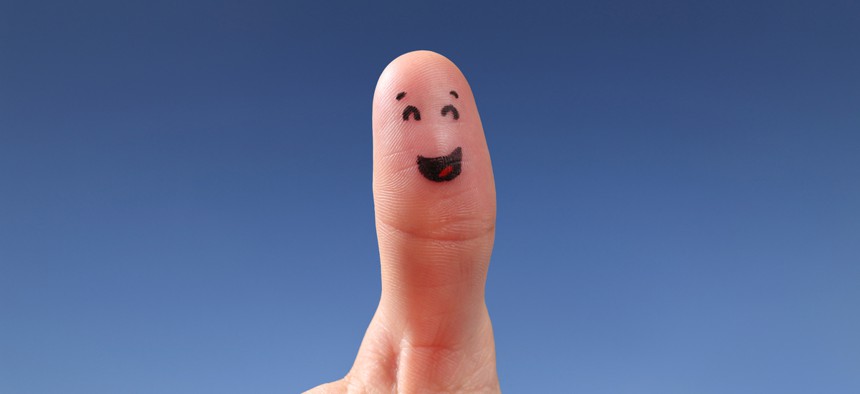
Erlo Brown/Shutterstock.com
How To Be Kind At Work, No Matter How You’re Feeling
Workplace kindness begins with action, not feelings.
Take a moment to look around you. Chances are, you’ll see your work colleagues rather than family, friends, or pets.
Most of us spend the majority of our time at work. But how happy are we at this place we spend so much time? Unfortunately, not very. According to the American Psychological Association, an alarming 61% of Americans say that work is a significant source of stress in their lives. And Gallup estimates that actively disengaged employees cost more than $483 billion each year in lost productivity.
We believe that bringing kindness into the workplace can help change that.
We’re a non-profit leveraging the science of kindness to solve the world’s greatest challenges. We began by commissioning Oxford University to review the existing scientific literature on kindness.
The results of our meta-analysis was published in the Journal of Experimental Social Psychology in 2018, and showed that kindness increases happiness and well-being. Additional research shows that doing an act, receiving an act, and observing an act of kindness all have positive effects.
If you think your workplace could use a little more kindness, one of the first steps you can take is to recognize that kindness is an action.
Though many people consider it a feeling, we consider it a meta-value, which means that feelings like empathy and compassion feed into it, but aren’t necessarily a prerequisite for kindness to take place.
Like key performance indicators or daily task lists, kindness is measurable. Workplace kindness programs can leverage data and research to assess and increase their impact on metrics including engagement, stress levels, physical and mental health, productivity, and job satisfaction.
Kindness is also scalable. In 2017 we carried out an experiment with 691 people from our kindness community into the effects of engaging in seven days of kindness. The study showed that the more that you engage in kindness, the greater your wellbeing, compassion, trust, positivity about humanity, and connection. Other research shows that kindness in the workplace spreads throughout the organization, giving each act the potential to reach well beyond the person being kind and the recipient of their kindness.
Doing kind acts can be simple, and it doesn’t need to look the same for everyone.
If you’re incredibly busy
- Smile at a colleague: Smiles don’t have to be joyful to make a difference. A smile can be a simple acknowledgement of someone else’s presence, or a show of solidarity (I see you searching the kitchen vainly for a clean fork, and I’ve been there!).
- Say good morning and good night to someone: Have you ever been heads down on a project and realized half your co-workers have left by the time you look up? This simple act recognizes that work is a team effort, and if you’re someone’s manager, can especially make someone feel seen for their contributions.
If you’re an introvert
- Try an act of cyber-kindness: Use digital platforms for good, by sending a thank you or compliment via email, messenger, Slack or other communication tool. Your act gives the other person room to respond on their own time, and they can save it for future moments when they may need a boost.
If you’re an extrovert
- Ask a coworker, “How was your weekend?” Listen, ask follow up questions, or offer supportive comments depending on their response. Our research found that people who did this act ranked it near the top of the list in terms of generating positive feelings.
- Cheer someone up who is stressed or having a bad day: Leave them a kind note or card, or let them know you have time to listen if they’d like to talk about it.
If you’re grumpy
- Pay it forward: Desperate for coffee? Get two and share. Treating yourself and someone else at the same time might just make you feel a bit better.
- Take a break: Self-care is an act of kindness. Taking even just a few minutes out of your workday to breathe or take a short walk can remind you that your health and well-being matters, too.
No matter what acts you choose, making kindness a regular a part of your work is an investment that can pay dividends at all levels of an organization. We believe that leveraging science to cultivate kinder workplaces will ultimately lead to people being happier and healthier in all aspects of their lives.






